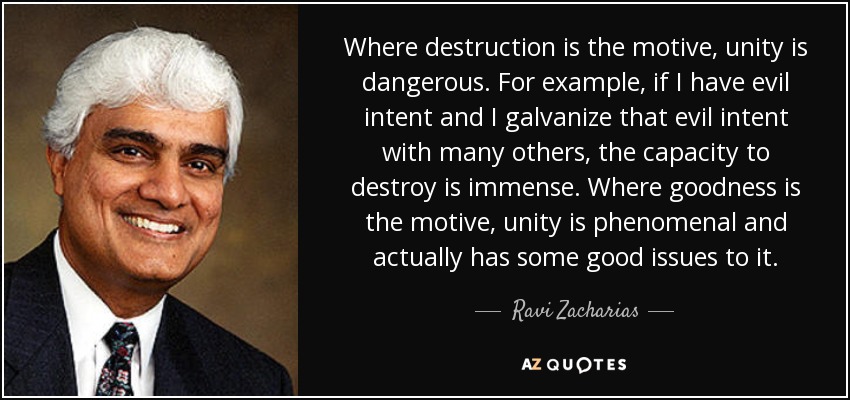
Page Description
Bad Intent and Bad Motivations. Dr. Paul Duckett’s critical analysis of Hidden motives & systemic issues masked by claims of objectivity & professionalism.

Bad intend
And bad motivations
Behind the veils of objectivity
The veils of profesionalism
The veils of tiers
Bad intent and bad motivations: This suggests underlying negative purposes or goals that drive certain actions. These intentions might be selfish, harmful, or deceitful.
Behind the veils of objectivity: This implies that claims of being objective and unbiased can be used to mask ulterior motives. Someone might present themselves as neutral or impartial, but in reality, they have hidden agendas.
The veils of professionalism: This indicates that a professional demeanor or appearance can be used to cover up unethical or malicious behavior. Professionalism might be employed to give a false sense of trustworthiness and integrity.
The veils of tiers: This likely refers to hierarchical structures, such as in organizations or societies, where different levels (tiers) are used to obscure the true nature of decisions or actions. People in higher tiers might manipulate or exploit those below them while hiding behind their position of authority or status.
Overall, these phrases suggest a critique of how people or institutions can use seemingly positive qualities (objectivity, professionalism, hierarchical structure) to disguise harmful or self-serving actions.
Dr. Paul Duckett’s analysis of Gareth Jenkins’ testimony in the Post Office Horizon IT Inquiry reveals several key issues that highlight problematic behaviors and practices masked by professionalism and objectivity. Here’s a summary based on the outlined segments of Duckett’s critical analysis:
Move fast and break things: Duckett likely critiques the haste and recklessness in deploying the Horizon IT system, which led to severe consequences for sub-postmasters. Jenkins’ testimony suggests a pattern of rapid implementation without adequate testing or concern for potential flaws, aligning with this philosophy that prioritizes speed over accuracy or reliability (Post Office Inquiry) (Law Gazette).
The moralisation of technology: This point examines how technology, like the Horizon system, was imbued with a sense of infallibility and moral authority. Jenkins’ role involved defending the integrity of the system, often under unclear instructions, which led to the oversight of significant issues. The belief in the inherent reliability of Horizon overshadowed the reality of its flaws and the impact on individuals (Post Office Inquiry) (Law Gazette).
Computer code is moral code: Duckett seems to argue that the technical decisions and software code in Horizon were treated as inherently just and correct, without adequate scrutiny. Jenkins’ testimony indicates that he was pressured to validate the system’s robustness, sometimes without full disclosure of known issues, implying that the code itself was seen as beyond reproach (Law Gazette) (Yahoo News).
Conclusion: The overarching conclusion of Duckett’s analysis points to the dangerous consequences of these veils—objectivity, professionalism, and hierarchical obedience. Jenkins’ responses highlighted how systemic issues and lack of transparency in the management of the Horizon system contributed to wrongful convictions and significant harm to many sub-postmasters. Duckett likely calls for a reevaluation of how such technologies and the individuals behind them are scrutinized and held accountable (Post Office Inquiry) (Yahoo News).
In summary, Duckett’s critical analysis underscores the need for greater transparency, accountability, and ethical consideration in the deployment and management of technological systems, especially those with far-reaching impacts on people’s lives.
Post Office Scandal – Gareth Jenkins
Back to menu IMPORTANT CONTENT Listening recommended Must ***
14 jul 2024
Some critical analysis on what might have been revealed by Gareth Jenkins’ testimony to the Post Office Horizon IT Inquiry.
00:00 – Start
02:10 – Dirty wizard or
absent-minded
professor
05:55 – 1. Move fast and break things
09:31 – 2. The moralisation of technology
11:46 – 3. Computer code is moral code
17:14 – Conclusion

Critical psychology alerts us to the limitations of mainstream research in the discipline, and it promises to put ‘social’ issues on the agenda in the whole of psychology. A starting point of the stance of critical psychological research is that the claims that psychologists make about human beings often seem to vanish almost as quickly as they are discovered. People, a group or culture do not behave or think like the model would predict, and, more importantly, we find that our awareness, our reflection on a process described by a psychologist changes that process. It is in the nature of human nature to change, to change as different linguistic resources, social practices, and representations of the self become available, and for human nature to change itself as people reflect on who they are and who they may become. That means that any attempt to fix us in place must fail. But it will only fail in such a way that something productive emerges from it if we do something different, and one place to do something different is in psychology. We need to step back and look at the images of the self, mind and behaviour that psychologists have produced, the types of practices they engage in, and the power those practices, those ‘technologies of the self’ have to set limits on change. When we appreciate this, we can start to look at what psychologists might do instead as part of a genuinely critical approach.
Martin Smith – Mr Henry’s Grilling
26 jun 2024
A former senior Fujitsu engineer has denied knowing the “gory details” of remote access to the faulty Horizon system which caused Post Office subpostmasters to be falsely accused of having taken money from branch accounts.
Gareth Jenkins told the Post Office Horizon IT Inquiry he thought any remote access would have been visible to subpostmasters and could be distinguished from changes made by third parties, although he acknowledged he knew it was “theoretically possible” this might not always be the case.
Mr Jenkins worked at Fujitsu, formerly known as International Computer Limited, for the whole of his professional career before retiring in 2015, and had been a “distinguished engineer” since the mid-1990s.
His evidence about the Horizon system was used in the prosecutions of many subpostmasters, including Seema Misra, who was given a 15-month prison sentence in November 2010, when she was eight weeks pregnant.
Previous witnesses to the inquiry have claimed Mr Jenkins may have committed perjury due to his failure to disclose knowledge of bugs in the Horizon system to the subpostmasters.
Post Office Inquiry: Forensic accountant says Vennells avoided probing miscarriages of justice
18 jun 2024
Independent forensic accountant says Paula Vennells tried to steer him away from probing miscarriages of justice.
Ian Henderson, one of the two forensic accounts from Second Sight paid by the Post Office (POL) to review cases involving Horizon in 2012, said he felt he was “dealing with a cover-up… and possibly a criminal conspiracy”.
Martin Smith – I can’t remember?
Martin Smith – I don’t recall this?
Martin Smith – Were You On Work Experience?
POST OFFICE SCANDAL: Ex-boss gives many reasons why he hasn’t said sorry to subpostmasters
3 jul 2024
Post Office Horizon IT inquiry continues with evidence from Tim Parker, former chair of Post Office Ltd.
Mr Parker explains why there was no satisfactory way to say sorry to subpostmasters, as ‘people have kind of got a bit tired of that, and it all rings a bit hollow.’
Sudden Corner Store Hostage
2 mei 2011
Prank victims enter a corner store hoping to pick up a few essential items. As they go to the counter to pay, they notice a baseball bat, which rolls to the floor. They go to pick it up, but suddenly, all the lights turn off. Then, in a flash, the lights turn back on and the cashier is tied up with duct tape around his mouth, while the prank victims are brandishing a baseball bat. This doesn’t look good. For the two police officers who come in immediately after, it sure looks like they just entered a hostage situation, and these confused prank victims are in a lot of trouble.
A presentation of JustForLaughsTV, the official Just For Laughs Gags YouTube channel. Home of the funniest, greatest, most amazing, most hilarious, win filled, comedy galore, hidden camera pranks in the world!